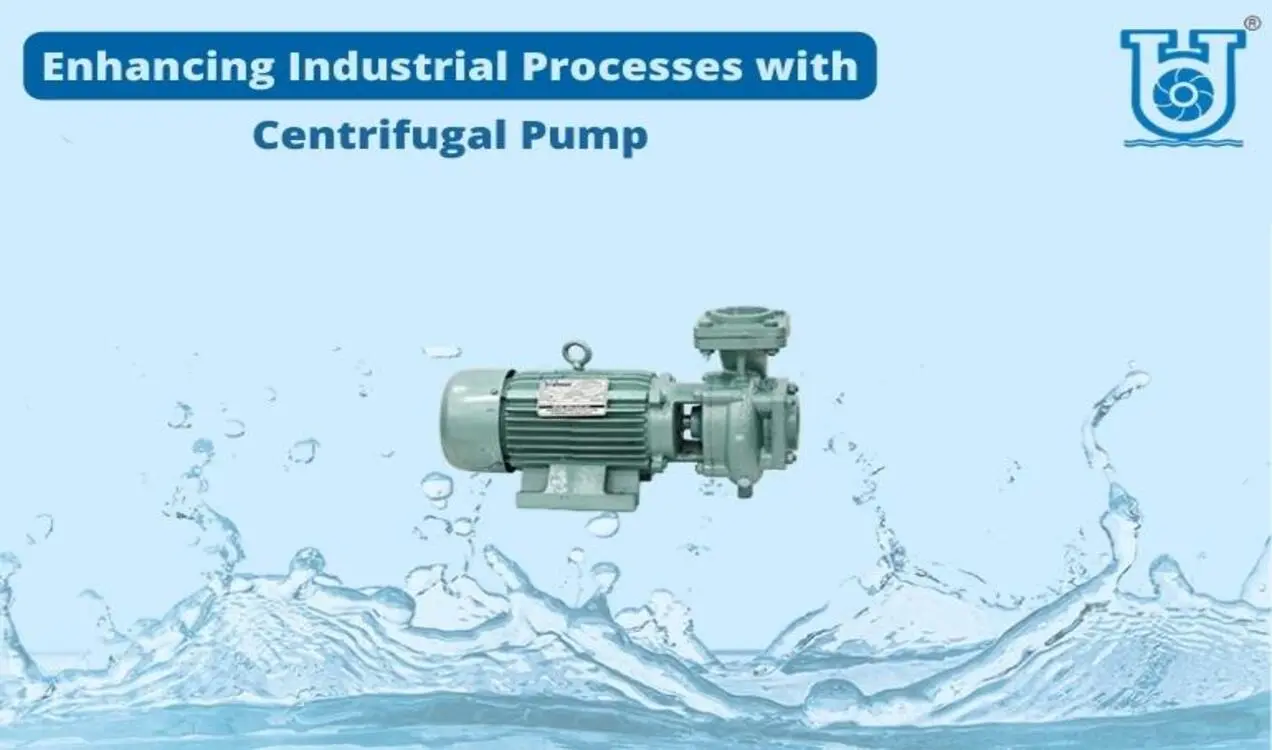Centrifugal pumps serve a significant role in different industrial applications, allowing the movement of fluids with efficiency and dependability. These pumps employ centrifugal force to generate fluid flow, making them flexible and adaptable to diverse industrial demands. In this article, we will cover the principles of centrifugal pumps, dig into their applications across sectors, highlight their advantages, discuss considerations for selecting the proper pump, and provide maintenance and troubleshooting recommendations.
Understanding Centrifugal Pumps
Centrifugal pumps are devices that employ centrifugal force created by a revolving impeller to transfer fluids. They consist of three major components: an impeller, a casing, and a motor.
Working Principle:
As the impeller spins, it contributes kinetic energy to the fluid, which raises its velocity. This high-velocity fluid is then directed into the casing, where it experiences a conversion from kinetic energy to pressure energy, resulting in the required fluid flow from the suction side to the discharge side.
Types of Centrifugal Pumps:
Centrifugal pumps are available in numerous kinds, including single-stage and multi-stage pumps. Additionally, submersible pumps are excellent for underwater applications, whereas self-priming pumps may work even when not initially loaded with fluid.
Industrial Applications of Centrifugal Pumps
A. Water Treatment and Distribution:
Centrifugal pumps are crucial in water treatment facilities, enabling operations such as filtration, disinfection, and chemical treatment. They also allow the delivery of treated water via pipelines and networks.
B. Chemical and Petrochemical Industries:
Centrifugal pumps serve a key function in moving different chemicals and petrochemicals. They handle corrosive compounds effectively and are built to resist the obstacles offered by such materials.
C. Oil and Gas Sector:
Centrifugal pumps are extensively employed in the oil and gas sector for extraction, transportation, and refining activities. They manage the transmission of crude oil, natural gas, and other associated fluids, including offshore applications.
D. Manufacturing and Process Industries:
In industrial and process sectors, centrifugal pumps have been used in numerous processes such as material handling, circulation, and cooling. Industries, including food processing and pharmaceuticals, depend on these pumps for effective fluid movement.
Benefits of Centrifugal Pumps in Industrial Settings
A. Efficiency and Reliability:
Centrifugal pumps are very efficient, transforming input power into fluid flow with little loss. They are noted for their dependability, needing minimum maintenance, and giving constant performance.
B. Versatility and Adaptability:
Centrifugal pumps are flexible, capable of handling a wide variety of fluids, from water to chemicals. They may function under various pressure and flow rate circumstances, adjusting to the needs of diverse industrial processes.
C. Scalability and Capacity:
Centrifugal pumps provide scalability, enabling firms to modify their pumping capacity to meet changing production needs. They excel at managing high-capacity flow rates, making them suited for large-scale industrial applications.
Considerations for Choosing Centrifugal Pumps
A. Fluid Characteristics:
Understanding the qualities of the fluid being pumped is vital in choosing the optimum centrifugal pump. Factors like viscosity, temperature, and corrosiveness affect the pump’s performance and material compatibility.
B. System Requirements:
Assessing the pressure, flow rate, and head requirements of the application is vital for selecting the proper pump size and type. Proper matching of pump parameters to system requirements guarantees optimum performance.
C. Operational Conditions:
Evaluating the working environment, including temperature and altitude, helps establish the pump’s appropriateness under given settings. Special attention should be paid to aspects like cavitation, which may occur when the pressure goes below the fluid’s vapor pressure, and Net Positive Suction Head (NPSH) requirements to prevent pump performance concerns.
Maintenance and Troubleshooting Tips
A. Routine Maintenance:
- Regular inspections and preventative maintenance are necessary for optimum pump operation.
- Check and maintain pump components periodically to guarantee their good operation.
- Inspect seals, gaskets, and connectors for any evidence of leaks or wear.
- Monitor vibration levels to discover any irregularities.
- Lubricate bearings as per the manufacturer’s instructions.
- Ensure appropriate alignment of the pump with the motor.
B. Common Issues and Troubleshooting:
- Leakage: Check seals, gaskets, and connections for any damage or misalignment. Replace or repair as necessary.
- Reduced performance: Verify that the impeller is not damaged or obstructed with debris. Clean or replace as necessary. Check for obstructions in the suction or discharge pipes.
- Abnormal noises: Inspect bearings for degeneration or lack of oil. Address any difficulties with lubrication or replace aged bearings.
- Overheating: Check for proper cooling and ventilation. Ensure that the motor is functioning within its indicated temperature range.
- Cavitation: Verify that the NPSH criteria are fulfilled. Adjust the pump speed or impeller diameter as necessary.
Conclusion
In conclusion, centrifugal pumps provide a stable and adaptable option for fluid transmission in industrial environments. From water treatment and chemical industries to oil and gas extraction and industrial operations, these pumps prove indispensable. Their efficiency, versatility, and scalability make them a favored option for enterprises across varied industries. By evaluating criteria, including fluid properties, system requirements, and operating circumstances, enterprises may pick the correct centrifugal pump for their individual needs. Regular maintenance and fast troubleshooting further assure continuous functioning and enhance the pump’s lifetime. Embracing centrifugal pumps enables industrial operations with greater productivity, efficiency, and dependability.


